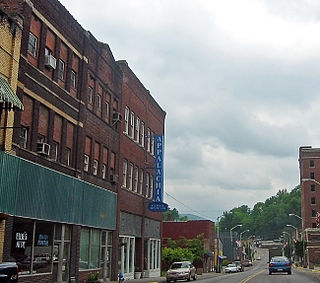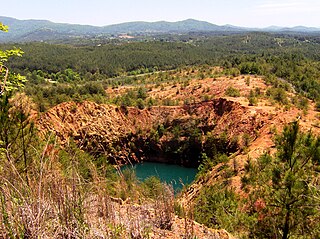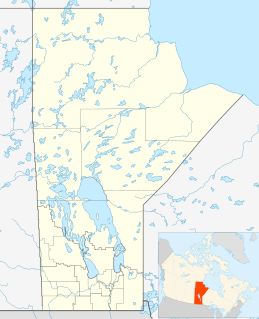Tennessee Fall Homecoming is the popular fall (autumn) festival of the Museum of Appalachia. A four-day event held annually on the second full weekend of October, Homecoming features continuous performance on five stages of traditional music ranging from gospel to bluegrass for the duration of the event. Over a quarter-century old, its headliners have included Doc Watson, Ralph Stanley, Mac Wiseman, Janette Carter, Rhonda Vincent, Bitt Rouse, and Doyle Lawson and Quicksilver.

The Museum of Appalachia, located in Norris, Tennessee, 20 miles (32 km) north of Knoxville, is a living history museum that interprets the pioneer and early 20th-century period of the Southern Appalachian region of the United States. Recently named an Affiliate of the Smithsonian Institution, the museum is a collection of more than 30 historic buildings rescued from neglect and decay and gathered onto 63 acres (250,000 m2) of picturesque pastures and fields. The museum also preserves and displays thousands of authentic relics, maintains one of the nation's largest folk art collections, and hosts performances of traditional Appalachian music and annual demonstrations by hundreds of regional craftsmen.
Gospel music is a genre of Christian music. The creation, performance, significance, and even the definition of gospel music varies according to culture and social context. Gospel music is composed and performed for many purposes, including aesthetic pleasure, religious or ceremonial purposes, and as an entertainment product for the marketplace. Gospel music usually has dominant vocals with Christian lyrics. Gospel music can be traced to the early 17th century, with roots in the black oral tradition. Hymns and sacred songs were often repeated in a call and response fashion. Most of the churches relied on hand clapping and foot stomping as rhythmic accompaniment. Most of the singing was done a cappella. The first published use of the term "gospel song" probably appeared in 1874. The original gospel songs were written and composed by authors such as George F. Root, Philip Bliss, Charles H. Gabriel, William Howard Doane, and Fanny Crosby. Gospel music publishing houses emerged. The advent of radio in the 1920s greatly increased the audience for gospel music. Following World War II, gospel music moved into major auditoriums, and gospel music concerts became quite elaborate.
Bluegrass music is a form of American roots music. It was named by Bill Monroe who named his band The Blue Grass Boys. The 1939–1996 band of Kentucky mandolin player and songwriter Bill Monroe, who is considered "the father of bluegrass". The Blue Grass Boys played a Mountain Music style that Bill learned in Asheville, North Carolina from bands like Wade Mainer's and other popular acts on radio station WWNC. It was further developed by musicians who played with him, including 5-string banjo player Earl Scruggs and guitarist Lester Flatt. It was then evolved by other musicians who admired the high-energy instrumental and vocal music Monroe's group created, and who carried it on into new bands, some of which created subgenres of bluegrass.
Each year over 175 artisans - some of whom do not sell in other venues - demonstrate and sell old-time Appalachian crafts. Demonstrations range from paper being made from milkweed to apple sulfuring (a method of preserving fruit by exposing slices to sulfur smoke, which kills bacteria). [1]

Appalachia is a cultural region in the Eastern United States that stretches from the Southern Tier of New York to northern Alabama and Georgia. While the Appalachian Mountains stretch from Belle Isle in Canada to Cheaha Mountain in Alabama, the cultural region of Appalachia typically refers only to the central and southern portions of the range, from the Blue Ridge Mountains of Virginia, southwesterly to the Great Smoky Mountains. As of the 2010 United States Census, the region was home to approximately 25 million people.
Other activities include buck dancing and clogging. Visitors can participate in daily hymn singing in the Museum's 19th-century log "Church in the Wildwood." Dozens of local ladies and food vendors serve country food on the grounds every day, some of it prepared on woodburning stoves and in iron kettles.

Clogging is a type of folk dance in which the dancer's footwear is used percussively by striking the heel, the toe, or both against a floor or each other to create audible rhythms, usually to the downbeat with the heel keeping the rhythm. The dance style has recently fused with others including African-American rhythms, and the Peruvian dance "zapateo", resulting in the birth of newer street dances, such as tap, locking, jump, hakken, stomping, Gangsta Walking, and the Candy Walk dance. The use of wooden-soled clogs is rarer in the more modern dances since clog shoes are not commonly worn in urban society, and other types of footwear have replaced them in their evolved dance forms. Clogging is often considered the first form of street dance because it evolved in urban environments during the industrial revolution.
Approximately 50,000 visitors attend some part of the four-day event. Special admission rates apply.













